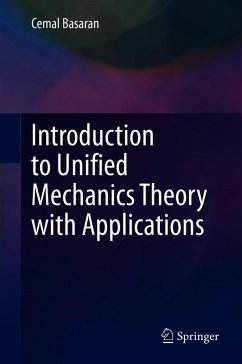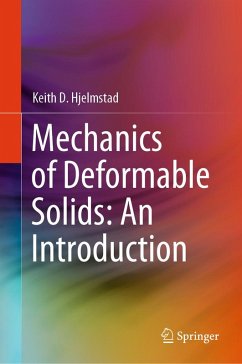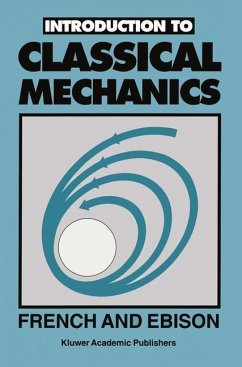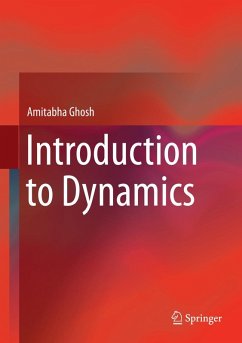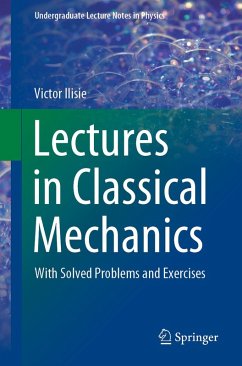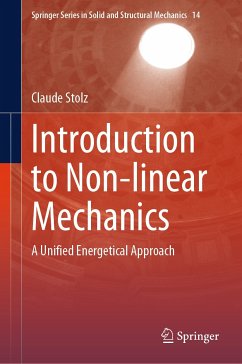
Introduction to Unified Mechanics Theory with Applications (eBook, PDF)
Versandkostenfrei!
Sofort per Download lieferbar
64,95 €
inkl. MwSt.
Weitere Ausgaben:

PAYBACK Punkte
32 °P sammeln!
This second edition adds new sections on derivation of dynamic equilibrium equations in unified mechanics theory and solution of an example, derivation of very high cycle fatigue thermodynamic fundamental equation and application/verification with two metal fatigue examples, derivation of thermodynamic fundamental equations for metal corrosion, examples of corrosion - fatigue interaction. There is also an example of ultrasonic vibration fatigue and one traditional tension/compression loading in elastic regime. While updated and augmented throughout, the book retains its description of the math...
This second edition adds new sections on derivation of dynamic equilibrium equations in unified mechanics theory and solution of an example, derivation of very high cycle fatigue thermodynamic fundamental equation and application/verification with two metal fatigue examples, derivation of thermodynamic fundamental equations for metal corrosion, examples of corrosion - fatigue interaction. There is also an example of ultrasonic vibration fatigue and one traditional tension/compression loading in elastic regime. While updated and augmented throughout, the book retains its description of the mathematical formulation and proof of the unified mechanics theory (UMT), which is based on the unification of Newton's laws and the laws of thermodynamics. It also presents formulations and experimental verifications of the theory for thermal, mechanical, electrical, corrosion, chemical and fatigue loads, and it discusses why the original universal laws of motion proposed by Isaac Newton in 1687 are incomplete. The author provides concrete examples, such as how Newton's second law, F = ma, gives the initial acceleration of a soccer ball kicked by a player, but does not tell us how and when the ball would come to a stop. Over the course of the text, Dr. Basaran illustrates that Newtonian mechanics does not account for the thermodynamic changes happening in a system over its usable lifetime. And in this context, this book explains how to design a system to perform its intended functions safely over its usable life time and predicts the expected lifetime of the system without using empirical models, a process currently done using Newtonian mechanics and empirical degradation/failure/fatigue models which are curve-fit to test data. Written as a textbook suitable for upper-level undergraduate mechanics courses, as well as first year graduate level courses, this book is the result of over 25 years of scientific activity with the contribution of dozens of scientists from around the world.
Dieser Download kann aus rechtlichen Gründen nur mit Rechnungsadresse in A, B, BG, CY, CZ, D, DK, EW, E, FIN, F, GR, HR, H, IRL, I, LT, L, LR, M, NL, PL, P, R, S, SLO, SK ausgeliefert werden.



